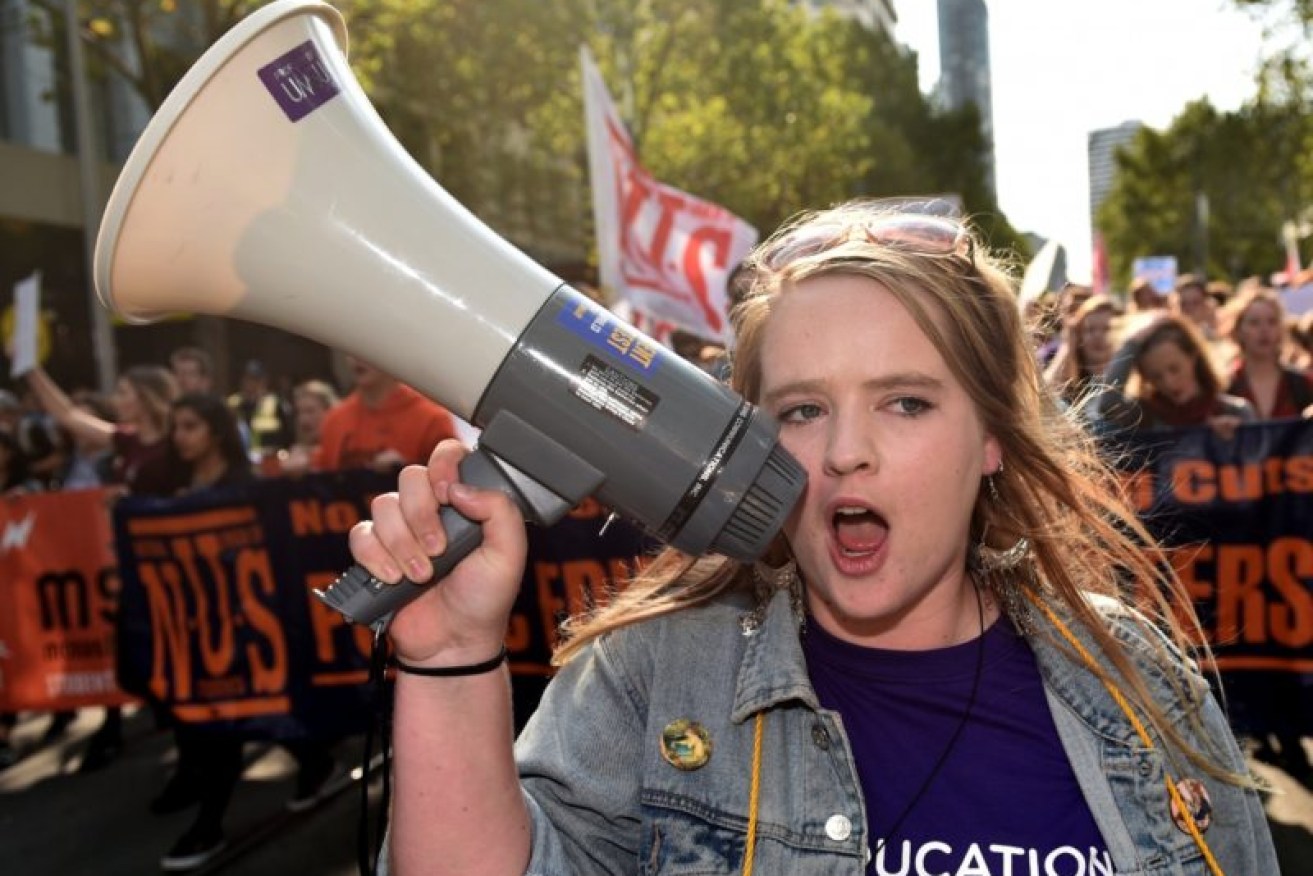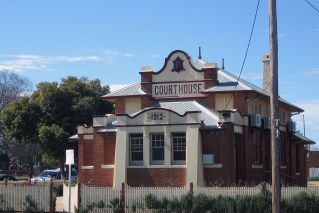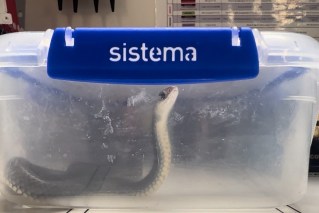Cuts to higher education pose an ‘existential risk’ to some universities


Universities are furious about proposed changes to higher education. Photo: AAP
Some Australian universities face an “existential risk” from the Turnbull government’s higher education package, a Senate inquiry has been warned.
The government has proposed a 2.5 per cent cut to Commonwealth funding over two years, but one university argues the efficiency dividend will “threaten the very viability of some institutions”.
“The cuts pose an existential risk to some universities,” the Australian Catholic University said in its submission.
ACU, which claims it will be hit hardest by the cuts, said the package would “place an intolerable financial burden” on universities, and noted five institutions – Victoria University, Murdoch University, Charles Darwin University, Southern Cross University and Batchelor Institute of Indigenous Tertiary Education – are already operating at a deficit.
“Elite” universities can absorb the cuts by relying on revenue from wealthy donors, international students and research grants, while ACU and regional universities – which are more dependent on Commonwealth funding – could not, it said.
This could lead to the “perverse outcome” where universities were forced to close under government reforms proposed “under the banner of improving the ‘sustainability’ of higher education”, ACU said.
The government’s higher education package includes lowering the HELP threshold to $42,000, a 7.5 per cent increase to student fees by 2021, and a 2.5 per cent ‘efficiency dividend’ in 2018 and 2019.

Senator Simon Birmingham has angered universities. Photo: AAP
Universities have also hit out at plans to tie a further 7.5 per cent of Commonwealth funding to accountability benchmarks that have not yet been outlined.
Education Minister Simon Birmingham has said universities must make a contribution to budget repair and are well equipped to do so because university funding has risen faster than costs, according to a Deloitte Access Economics report commissioned by the government.
The package would save the budget $2.8 billion over the next four years, but the sector’s peak body, Universities Australia, argues the increase to student fees meant they would “pay more and get less”.
“This constitutes a double hit on students, increasing the fees they pay— already high by international standards —and decreasing the funding for the courses, learning opportunities and student services that are critical to the quality of their education,” Universities Australia wrote in its submission.
The National Union of Students said reducing the HELP loan threshold to $42,000 would be an “unfair impost on students who have not (yet) gained a financial benefit for the income foregone while studying”.
“The change could also have an impact on participation of disadvantaged students,” the union said.
With Labor, the Greens and Senator Jacqui Lambie vowing to oppose the package, Senator Birmingham has signalled the government would be willing to negotiate to get the changes through Parliament as it did with the recent Gonski 2.0 package.
“We’ll make sure we have sustainable funding for universities, ongoing equitable access for students, and a contribution to budget repair and we’ll be pragmatic in working with the Senate to get that done,” he told reporters on Thursday.
“The university sector, whilst maybe wanting to cling to every revenue stream it can, needs to be realistic that they’ve been on an incredibly good wicket.”
The Deloitte Access Economics report found university costs per student have risen by 9.5 per cent while student funding has grown by 15 per cent.
But universities have claimed the review underrepresented costs by excluding spending on research and other activities.
Victoria University warned in its submission that the cuts would mean a $6.5 million hit to revenue, which would “require at least an additional 50 redundancies over the next 18 months”.
Western Sydney University said the cuts would be “devastating”, wiping out the institution’s “modest” surplus and potentially making a number of the university’s niche courses unviable.
Group of Eight chairman Professor Peter Høj last week described the proposed cuts as the “most brutal” by a federal government in “more than 20 years”.








